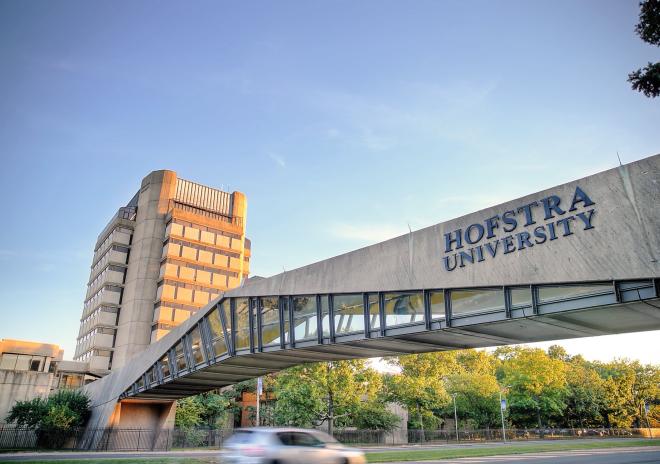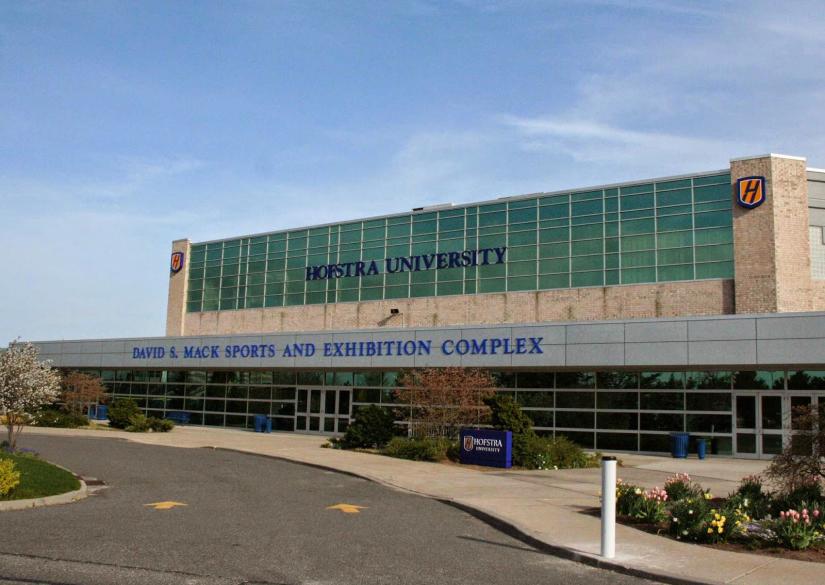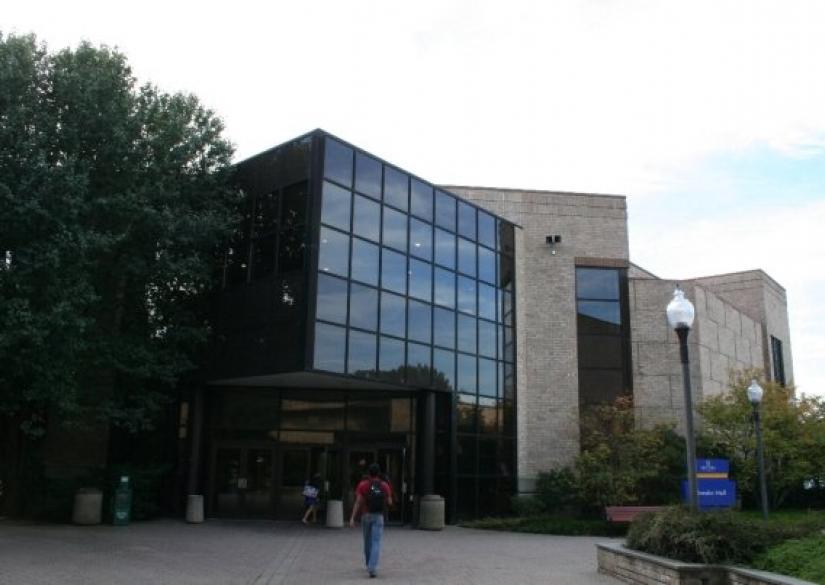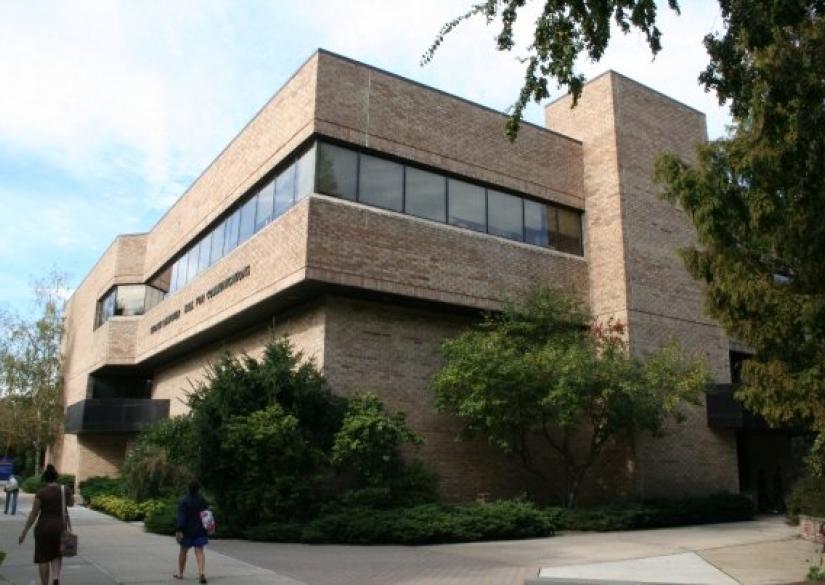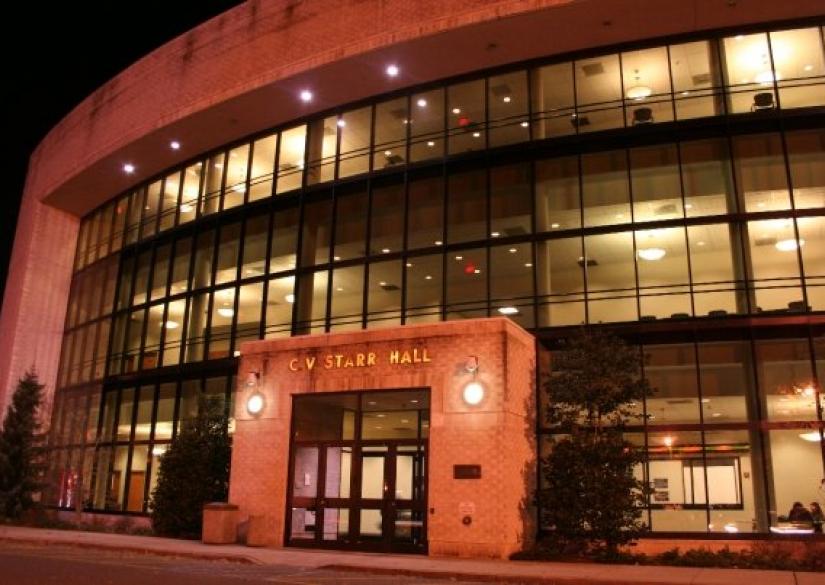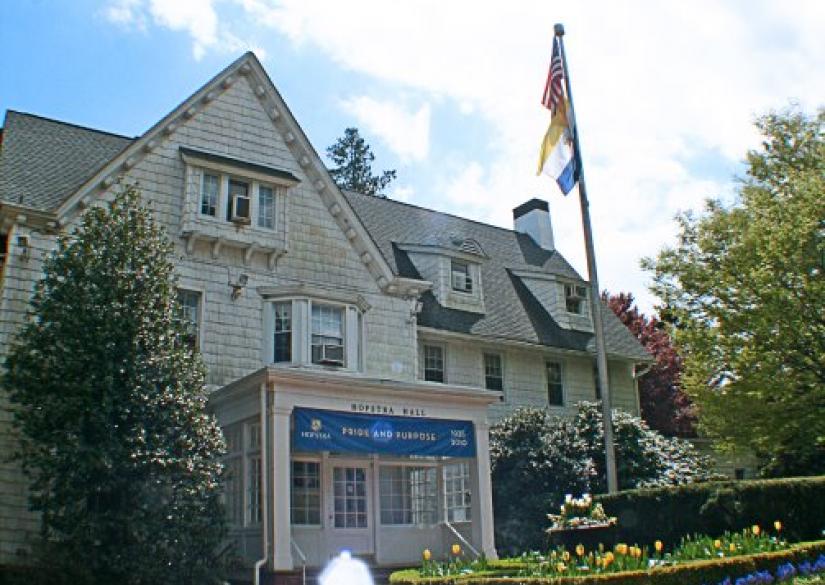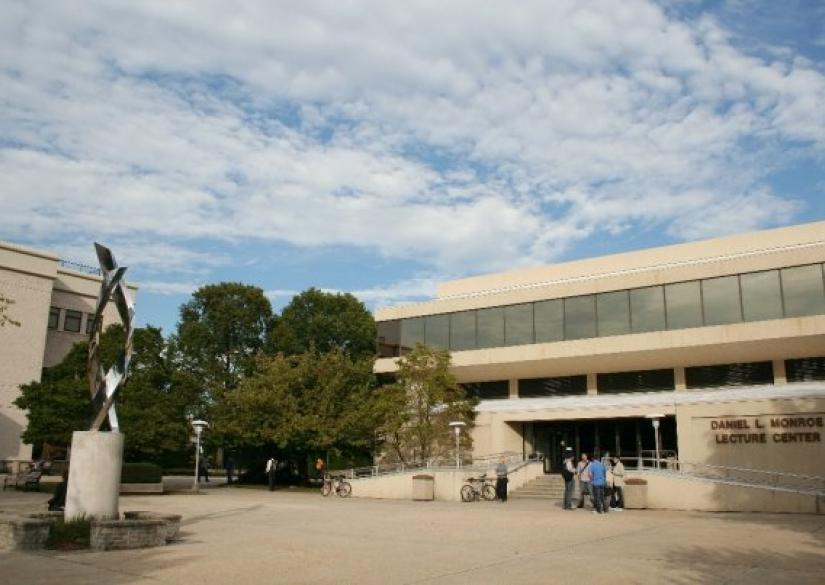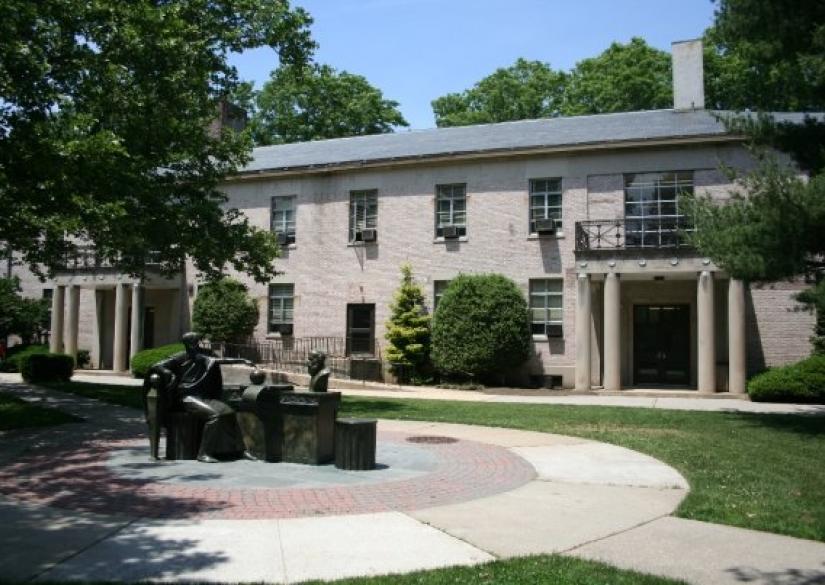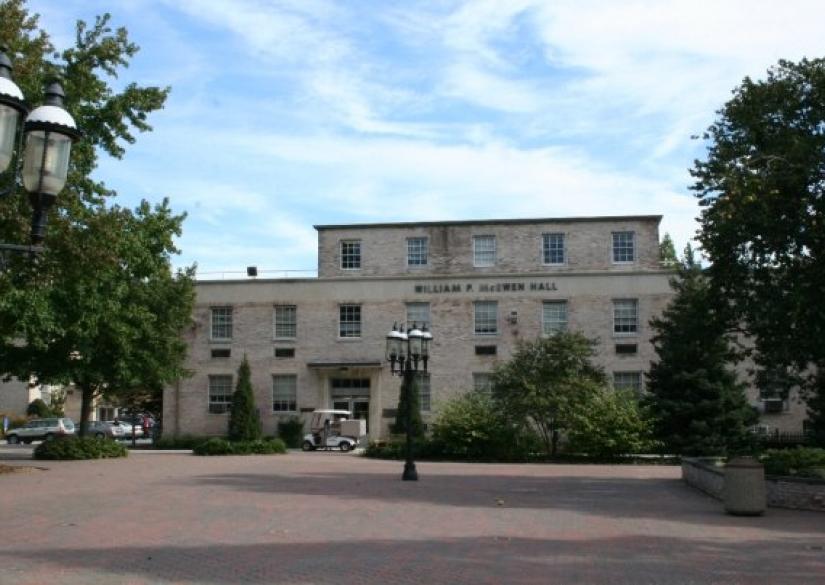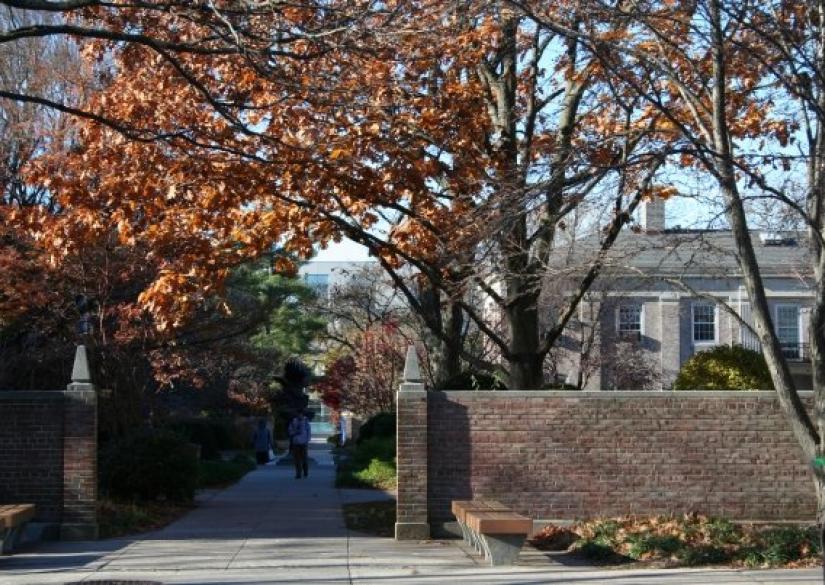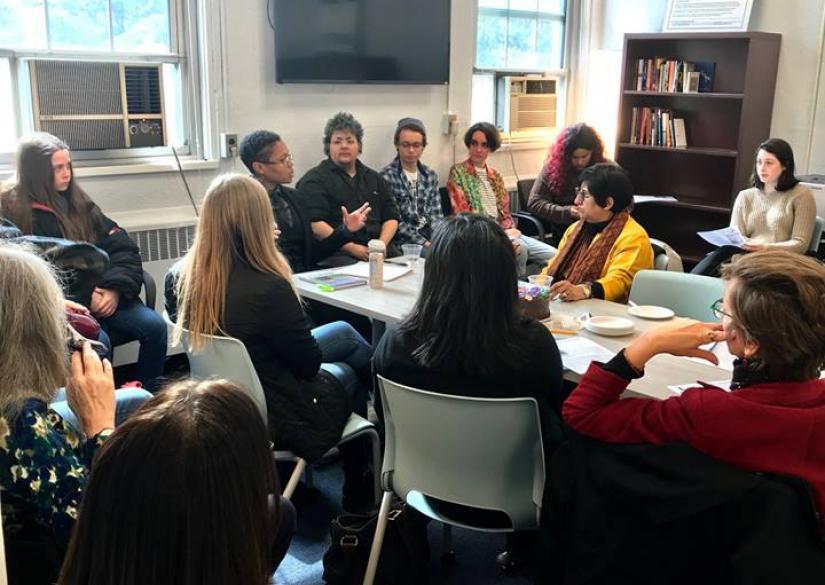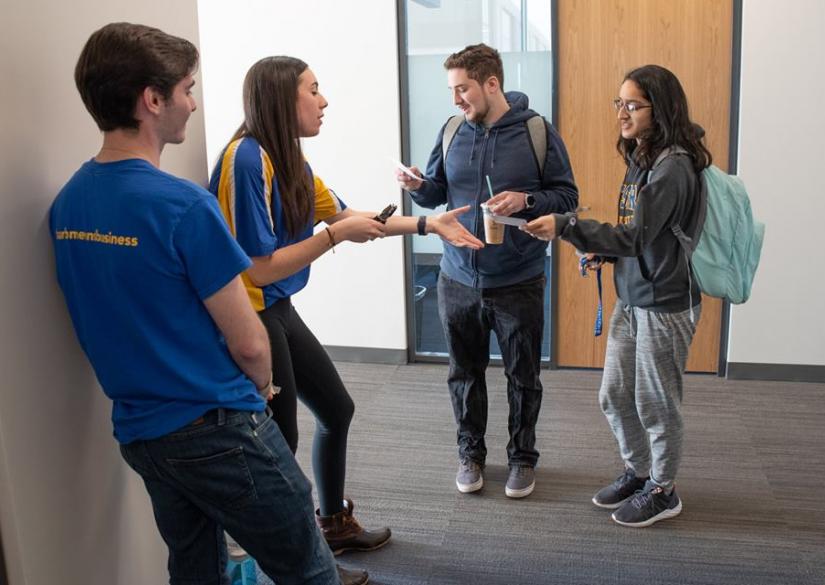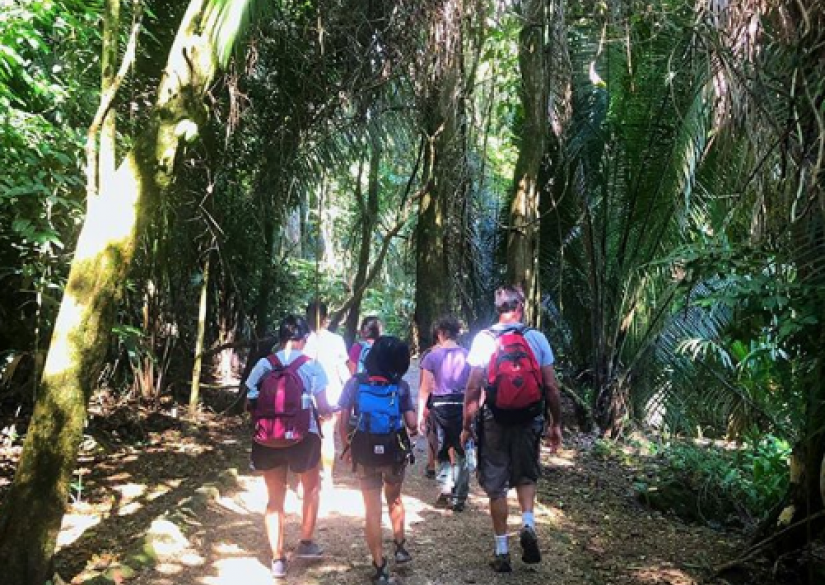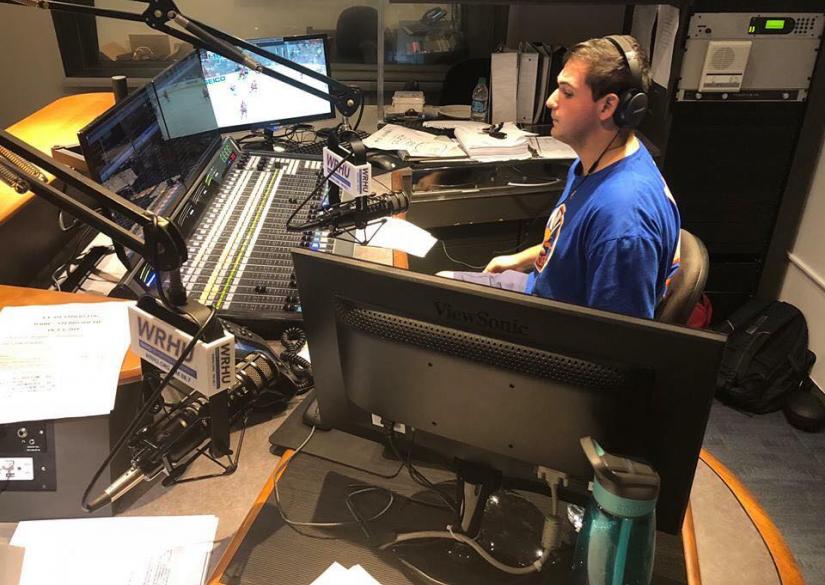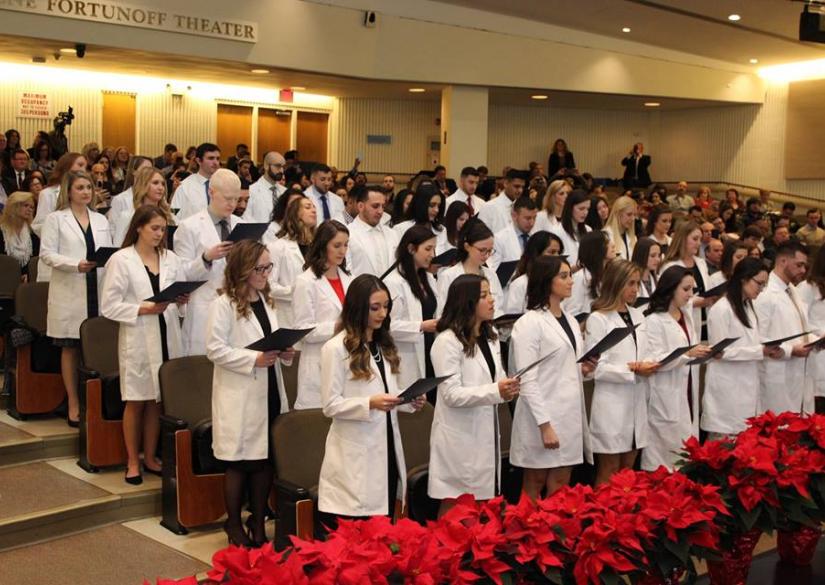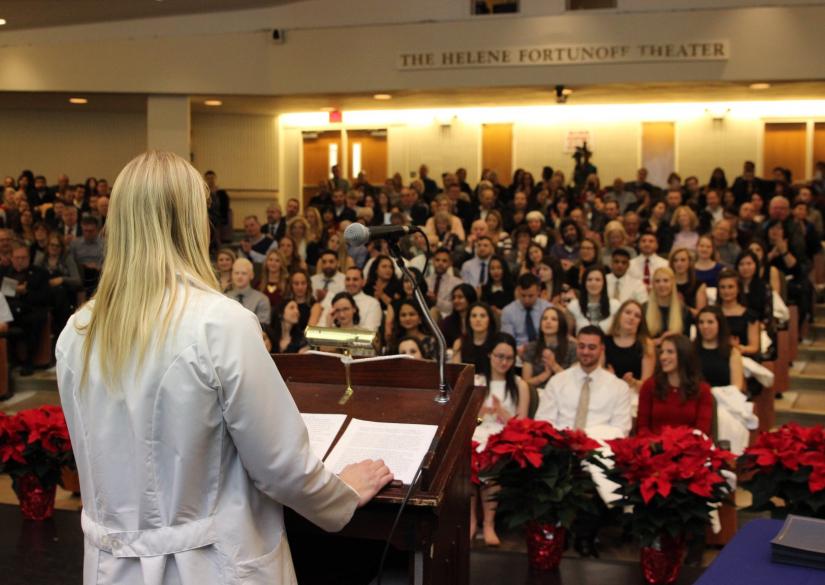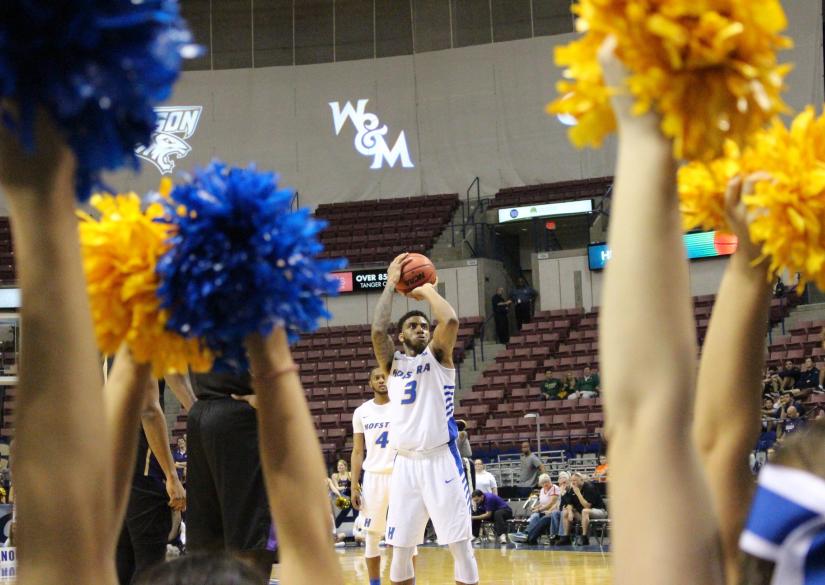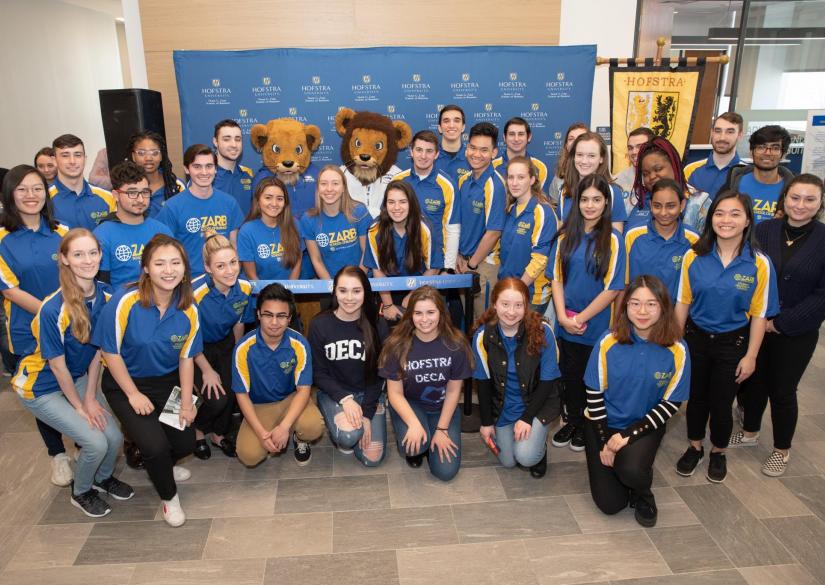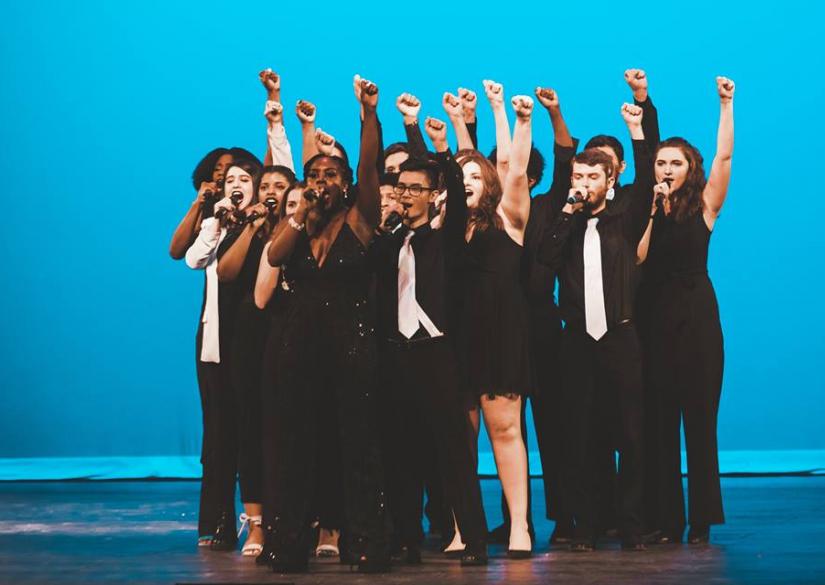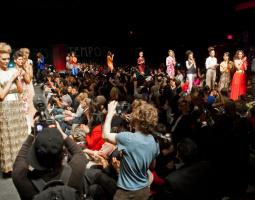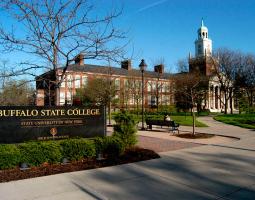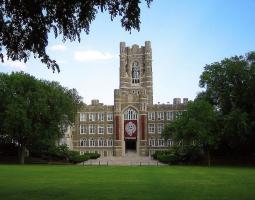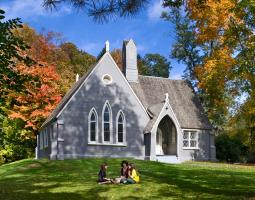Hofstra University New York
In the process of preparing the material, we referenced the following sources: Wikipedia, US News, Forbes, THE, the New York Times, newyorkyimby
Programs and prices, tuition fees in Hofstra University New York
Bachelor degree
- Age of students — from 18 years old,
- The studying period is four years.
The university offers more than a hundred bachelor's degree specializations, each of which will provide students with basic knowledge and applied skills in their chosen field of sciences. Some of the popular ones are:
- Criminology,
- Art,
- Accounting,
- Bioengineering,
- Anthropology, archeology,
- Computer Engineering,
- Cybersecurity,
- Computer science,
- Economy,
- Electrical engineering,
- English: Creative writing,
- Filmmaking,
- Health Science,
- International business,
- History.
The curriculum of the programs consists of lecture seminars, participation in project and research activities, and a variety of extracurricular development areas. Upon successful completion, students will be able to continue their academic career in a master's degree or find a job in their specialty.
Master's degree programs
- Age of students — from 21 years old,
- The studying period is one to two years.
Master's degree programs stipulate a more in-depth study of a chosen scientific field, with a serious focus on developing research skills. Students will attend lectures, seminars with specialized experts, participate in research at research centers, and internships.
Some of the Master's degree programs are:
- Journalism,
- Public relations,
- Health,
- Physical Education,
- Literacy Research,
- Applied Organizational Psychology,
- Counseling in creative art therapy,
- Clinical Psychology,
- Audiology,
- Speech therapy,
- Health Management,
- Sports training,
- Medical Informatics,
- Medical Physics,
- Pharmacy,
- Nursing,
- Occupational therapy.
A Master of Science degree will allow students to continue their doctoral studies or get a job in higher positions in their specialty.
International Year One
- Age of students – from 18 years old,
- The duration of studying is one, two or three semesters.
The International Year One Foundation Course allows foreign students to start earning academic credits for a bachelor's degree, even if they do not yet meet the entry requirements for direct admission. The curriculum integrates intensive language study, academic skills development, and credit-based coursework into an individualized program designed to help international students complete the first year of their undergraduate program and complete it in the same time as domestic students. Depending on the initial level of English proficiency, the student will be enrolled in a course lasting one, two or three semesters.
Studyinh is available in the following areas:
- Business
- Communication
- Engineering
- Informatics
- Visual and performing arts,
- Health Sciences, Physical Education,
- Science
- General education.
Graduate Pathways
- Age of students – from 20 years old,
- The term of study is one or two semesters.
In partnership with INTO education, two types of pre-Masters courses are available to international students: Integrated Master's Programs and the Degree Pathway.
The Integrated Master's Program is a supportive Master's degree course that provides additional academic and cultural support tailored to international students. The duration of studying will be one semester.
The Graduate Pathway program lasts for two semesters, allowing international students to earn degree credits through personalized academic, cultural, and language support. The curriculum is suitable for those students who do not yet meet the requirements for admission to master's specialties.
Many areas are available for studying in both types of programs, including:
- Computer Science,
- Business Analytics,
- Engineering Management,
- Data science,
- Creative Arts Therapy,
- Finance
- Healthcare Management,
- Cybersecurity,
- Foreign languages other than English,
- Literacy studies,
- Marketing
- Management
- Sports Science,
- Sustainable development
- Public health.
Academic English Courses
- Age of students – from 16 years old,
- The term of study is one to three semesters.
The Academic English program is focused on supporting international students and aims to improve core English language skills, adapting to the academic environment of U.S. universities.
Depending on the initial level of language proficiency, students will study for one, two or three semesters. Under the guidance of native English teachers, they will learn the skills of reading, writing, speaking and listening, which will increase their chances of admission to higher education programs.
Doctoral Programs
- Age of students – from 23 years old,
- The duration of studying is from three years.
At Hofstra University, you can earn a PhD in several specializations, including in the fields of education and teaching. The studying continues for three or more academic years, will include individual research on the selected topic under the guidance of subject teachers, researchers, and personal mentors. To complete the studying, students need to submit a dissertation based on the work done to the qualification commission.
Description of Hofstra University New York
- Year of foundation: 1935
- Location: Hempstead, NY, USA
- Language of instruction: English
- Number of students: about 10,400
- Type of studying: mixed.
Hofstra University New York is a private university offering more than 200 bachelor's, master's and doctoral degree programs in 13 specialized faculties.
The history of the institution began in 1935, when the fate of the estate of one of the influential Dutch-American families, William S. and Kate M. Hofstra, was being decided. In 1940, Hofstra University received a permanent campus in Hempstead and the status of a full-fledged university, separating from New York University, in collaboration with which he taught programs from the very beginning. Since then, the educational institution has the right to award higher education degrees, improve teaching and research activities.
Today, Hofstra University educates more than 10,000 bachelor's, master's, and doctoral students from more than 65 countries, including Spain, Canada, China, and India. Thanks to the comprehensive support of the teaching and administrative staff, extensive extracurricular development opportunities, students achieve academic and personal goals, gain professional skills and a chance to start a career immediately after graduation.

What advice do you have for potential applicants before applying to US universities?
Choose a university that really suits you - do not try to "adjust" yourself to a prestigious or ranked university. If you are not sure of your capabilities, do not dwell on the first top 10: believe me, many opportunities of less prestigious universities will be able to give you what you need to develop and become a specialist.
Educational process
The university has created specialized departments that provide comprehensive academic and other support to the student community:
- Center for Academic Excellence: tutoring, additional electives, individual meetings with teachers,
- Center for Design, Career Development: career seminars, personal consultations with mentors, communication with potential employers, search for internships,
- University Advising Center: developing a strategy to achieve your academic goals, preparing for admission,
- Center for International Student Affairs: assistance to foreign students with any issues of relocation, paperwork in a new country.
Faculties and colleges
Hofstra University consists of 13 specialized faculties and colleges in the following areas:
- Liberal arts, sciences,
- Public administration, politics, international relations,
- Education
- Humanities, Visual and Performing Arts,
- Natural Sciences, Mathematics,
- Medical sciences,
- Nursing,
- Medical School,
- Honors College,
- Business
- Engineering, Applied Sciences,
- Communication
- Jurisprudence.
Scientific achievements
Research centers are engaged in the development and study of innovations in many areas that are focused on improving the quality of life of the world community:
- Civic engagement,
- Access to education,
- Innovation, Entrepreneurship,
- Culture, social justice,
- Labor, democracy,
- STEAM,
- Cybersecurity,
- Digital research,
- Bioethics
- Forensic linguistics, threat assessment, strategic analysis,
- Public services.
Things to know about
The Hofstra family did not have children, so they devoted most of their lives to love animals. Kate was a well-known cowgirl, vice president of the Bide-a-wee Pet Association, president of the Atlantic Cat Club, and led the Hofstra Challenge Cup at the Madison Square Garden cat shows. A silver trophy worth $125 in 1904 was awarded to the best cat at the show.
In addition to the main house, there was a barn, a greenhouse, garages, a caretaker's house, and a small steam shed that was built for Mrs. Hofstra's cats. Not only did she have angoras and other prize cats, but also, in the words of family friend Howard Brouwer, "plain old stray cats." Her love of animals prompted Mrs. Hofstra to leave $10,000 to the Pet Association in her will. In addition, she left enough money to take care of those pets that will survive her - these are 25 cats, four dogs and three parrots. Her housekeeper was tasked with taking care of the pets, and she was bequeathed an allowance to build her own house for this purpose.
Accommodation, meals, prices
Hofstra University has 35 residential buildings ready to accommodate about 3,500 students. Upon admission, first-year students must choose a campus residence to live in in order to quickly adapt to the academic environment and get to know other students.
- The Netherlands
The complex includes 11 two-storey houses, each of which accommodates 55 newly enrolled students. Staying in a double apartment, students have a private bedroom and access to a bathroom and a living room. The buildings have classrooms, laundries, recreation areas and cafeterias.
- Stuyvesant Hall
Located next to the University Student Center, the residence offers four-bed apartments: two double bedrooms, a shared bathroom and a living room.
- Nassau Hall
A six-storey complex for 230 first-year undergraduate students. It has prepared single and double bedrooms located in apartments for four or five residents. The bathroom and the living room are semi-separate.
- The High Rises
Five high-rise residences are located east of the Hofstra University Student Center. From 225 to 300 students live in each building, accommodated in single, double, triple and quadruple rooms with shared bathrooms in each corridor.
Graduate students also live in some of these residential complexes. Additionally, Colonial Square is open for them — the largest residential area of the university with 14 two-storey buildings, each of which accommodates from 55 to 65 people. Postgraduate students can choose from two-, three-, four- and five-bed suites with full furniture, a living room, a bathroom and a kitchen with all necessary appliances.
Students who choose to specialize in law or medicine live in Graduate Residence Hall, a five—story residential building with 224 seats. Suites with several bedrooms, apartments with bathrooms, kitchens, and living areas are prepared in the building.
Hofstra University students have several options for meal plans that are flexible for any lifestyle. There are about 16 cafeterias and dining halls on the campus, which offer a variety of international and national cuisine menus with recipes for vegetarians, vegans and students with special needs. The meal plan consists of a certain number of meals per semester, as well as additional points for buying snacks and drinks in cafes and shops.
- Famous brands such as Starbucks, Brooklyn Slice, Au Bon Pain, Einstein Bros. Bagels, Dunkin Donuts, Red Mango, Freshens are available for inclusion in the meal plan,
- Hof USA is a favorite place for students, offering late dinners from 6 p.m. to 3 a.m., seven days a week.
- The most popular dishes are chicken wings, mozzarella sticks, quesadillas, burgers, milkshakes,
- The university store at Dutch Treats has a large selection of snacks, sandwiches and salads to take away, pizza Build Pizza, salads and rolls Create Salads & Wraps, soups Au Bon Pain and bottled drinks,
- Regular themed events accompanied by festive dishes and drinks: for example, farmers' markets in the fall and spring semesters, the annual Campus Dining Fall Fest, festive promotions for pies and, of course, Late Night Breakfast,
- Free nutrition consultations from qualified nutritionists, nutritionists, and chefs.
Activities Hofstra University New York
Sports sections at Hofstra University have two types: intramural and club. The first type involves a more professional approach to training, participation in interuniversity and regional competitions, and the second — amateur participation in classes, competitions between university students, maintaining a healthy lifestyle. Intramural sports include basketball, indoor soccer, and pickleball, while club sports:
- Badminton,
- Fencing,
- Baseball,
- Basketball,
- Hockey,
- Volleyball,
- Horseback riding,
- Softball,
- Rugby,
- Rock climbing,
- Downhill skiing, snowboarding,
- Lacrosse,
- Frisbee,
- Football,
- Esports.
The Student Government Association (SGA) is a student governing body composed of undergraduate students who act as a liaison between students and the teaching staff and administration. In addition to championing students' views and improving their lives, SGA organizes many events throughout the academic year and runs more than 200 clubs and themed organizations. Clubs are an important aspect of extracurricular activities and are small groups united by a common interest, hobby, or goal. They are divided into categories:
- Academic,
- Club sports,
- Faith,
- Fraternities, sisterhoods,
- Management,
- Culture,
- Origin,
- Media,
- Art,
- Entertainment,
- Efficiency,
- Professional skills development,
- Political, socially active,
- Social work,
- Health improvement, recreation.
From needlework and cooking, studying game design, a love of books and poetry, to conducting scientific research, hiking, and visiting chapels together, there is a suitable community for every student.
Due to the fact that the Hofstra University Museum of Art is one of the famous exhibition venues, local residents and invited specialists can see the talents of students. Students have the opportunity to participate in optional fine art courses and then present their work in the halls of the museum. The extracurricular arts program is not limited to this — students are offered classes in playing musical instruments, choral and solo singing, theater and public speaking skills.
Advantages
- It is included in 28% of the best universities in the USA according to the Wall Street Journal, Times Higher Education,
- One of the 389 leading colleges in the Princeton Review ranking,
- It is included in 14% of the country's universities with the best price-quality ratio of education,
- Specialized schools that are part of Hofstra University regularly occupy positions in the lists of the best in the country and in the world,
- More than 80 years of successful development, teaching and following modern educational standards,
- Multinational student community with representatives from more than 65 countries,
- Extensive opportunities for extracurricular development and professional skills acquisition, 13 specialized faculties with more than 200 higher education specializations,
- Comprehensive support for international students: from tutoring to additional language and preparatory courses.
Facilities and equipment at Hofstra University New York
Hofstra University's academic grounds are 244 acres and 117 buildings located in Hempstead, a 45—minute drive from New York City and its attractions. The campus is a former estate, thanks to which it has extensive outdoor areas for sports, walking and recreation.
The infrastructure of Hofstra University includes:
- 35 residences with a wide variety of rooms for first-year, bachelor's and graduate students,
- Specialized college buildings with laboratories, studios and workshops, lecture and conference halls,
- Administrative buildings housing student support offices,
- The Museum of Art, which holds a collection of more than 5,200 works from different cultures of the world,
- There are two libraries: general and legal. In total, they contain more than 600,000 books, each of them has round-the—clock access to online resources - more than 200,000 full-text magazines, more than 800,000 e-books.,
- A fitness center that includes cardio and strength training areas, specialized studios, and game rooms,
- Outdoor playgrounds for football, baseball, tennis, basketball and other team sports, Indoor swimming pool,
- 16 cafeterias and dining halls,
- Facilities for events and meetings of student communities.
A special place on the campus is the arboretum and the bird sanctuary, the care of which lies on the shoulders of both staff and students. The arboretum has a variety of plants of Dutch origin, including a variety of rare tulips.
Admission dates and extra charges
The academic calendar covers the entire year, as the admission of new students is organized according to the seasons. Depending on the date of admission, the selected program schedule will vary.
- Fall semester: September-December,
- Winter session: January,
- Spring semester: January-May,
- Summer sessions: May-August.
Classes are held on weekdays: from Monday to Friday, after which extracurricular activities are organized. Rest is provided on weekends, during vacations and national and international holidays.
An approximate list of additional costs may include:
- Registration fees, deposits,
- Accommodation, meals,
- Technology usage fees,
- Individual academic and other support not included in the curriculum,
- Some extracurricular activities, student association meetings,
- Compulsory insurance,
- Personal supplies, books,
- External exams,
- Personal expenses.
Enrolment process
Many stages of admission are available in an online format, which makes the registration process easier for international applicants. Candidates will have to:
- Fill out the registration form, provide the required documents,
- Pay the entrance fee,
- Pass an interview, possible profile tests,
- Receive an official invitation to enroll,
- Make deposits to book a place on the course, in the residence,
- Arrive on campus to attend orientation events, accommodation in residence, start classes.
Perspectives
To date, the number of graduates of Hofstra University has reached 148,000 qualified specialists in various fields. According to annual statistics, more than 93% of students are employed or continue their academic path within a year after graduation.
The university is in the TOP-9% of the country's institutions in terms of the average salary among all bachelor's graduates.
Entry requirements, how to apply, what is required to enrol
Prior to entering higher education programs, foreign applicants must complete preparatory courses in order to meet the entrance requirements. To enroll, they must provide: \
- Personal documents: passport, medical insurance, visa or residence permit,
- Certificate of completion of secondary education, performance reports,
- Language test results: TOEFL (from 60), IELTS (from 5.5), Duolingo (from 90) or university-recognized equivalent.
To transfer to bachelor's, master's, and doctoral programs, prospective students should have a complete pckage of personal documents, as well as:
- Academic certificate from the previous place of study: diploma of secondary education and certificate of preparatory course/bachelor's degree/Master's degree with performance reports,
- Language test results: IELTS (from 6.0) or equivalent,
- Individual Achievements, portfolio, letters of recommendation on demand.
Scholarships Hofstra University New York
In the fall of 2024, the university allocated $59.8 million to first-year students, and the total amount of the scholarship fund amounted to $179.6 million to all enrolled undergraduate students. There are two types of awards at Hofstra University: scholarships and merit grants, and financial assistance.
To obtain a scholarship or grant, a student must have outstanding academic performance, be an active participant in extracurricular activities, and maintain their results for at least one year. In order to receive financial assistance, the student must provide evidence that he is unable to fully pay for his own education. Financial support requires distinctive academic success.
Literature and references
Institution on the map
Residence permits, citizenship and other services
- Guardianship services during the studies
- Student supervision
Review about Hofstra University New York
Recommendations on when to apply
| Language courses, schools and children's language camps | Primary and secondary education - private schools | Preparation programmes for entering universities - higher education | Higher education (after completing accredited programs A-level, IB, High School) - Bachelor, Master, MBA |
| - we recommend to apply 6-9 months before the start of the course (some camps and schools offer discounts for early booking or for lengthy study programs) - there are some very popular and high demand children's camps, where the applications need to be submitted 1 year in advance (in particular Switzerland , Great Britain , USA , Canada , Austria) | - we recommend to apply one year before the start of the training program, - some schools have a specific time frame (September-November - please specify an individual school) - some schools require tests in several stages (UKISET, internal tests of the school: English, mathematics, logics, subjects, interview, some require a personal visit) | - we recommend to apply one year before the start of the program, - for Foundation and Pathway programs, IELTS and TOEFL certificates are usually required, respectively | - recommended submission one year before the start of the program, - the deadline normally closes in January, for TOP HEIs and, as a rule, in March in other universities - for a bachelor, a Foundation or Pathway preparatory program a completed A-level, IB, High School + IELTS / TOEFL are required - for Masters you need a graduated higher education, in some cases you need a pre-Masters program - MBA requires completed higher education, work experience preferably at least 2-3 years, etc. |


